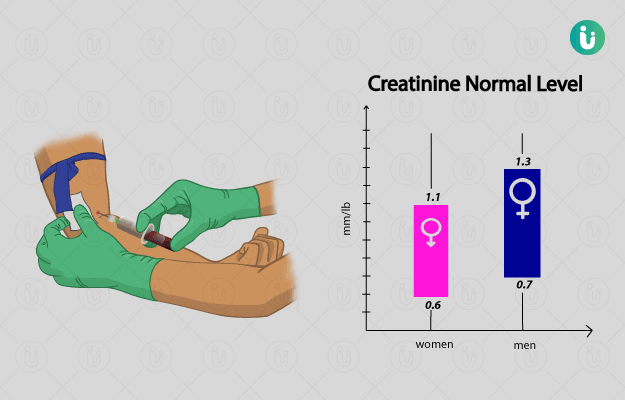What is Creatinine test?
Creatinine test is ordered to evaluate the health of kidneys, detect kidney disease and monitor the treatment provided for kidney disease.
Creatinine is generated as a waste product in the body and is almost fully removed by healthy kidneys. It starts to build up in bloodstream in case of kidney dysfunction. So, measuring creatinine levels in the blood can help doctors determine kidney function.
This test is also known as creat, blood creatinine and serum creatinine.














